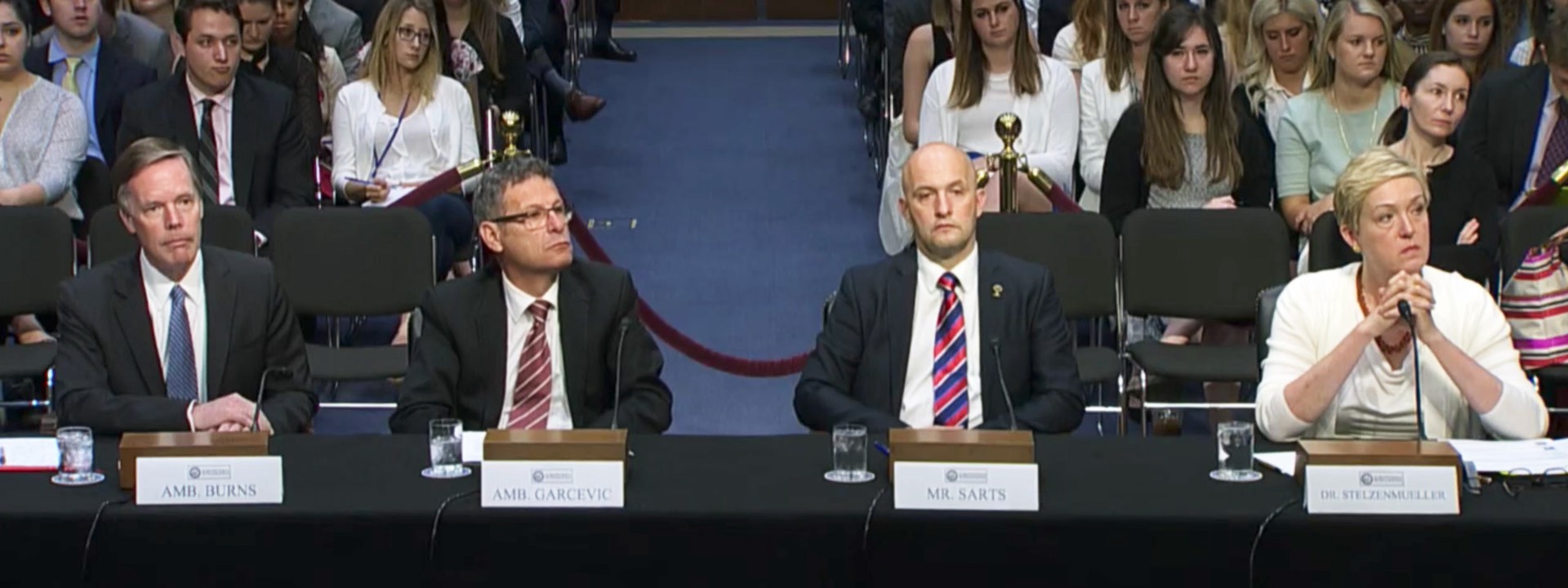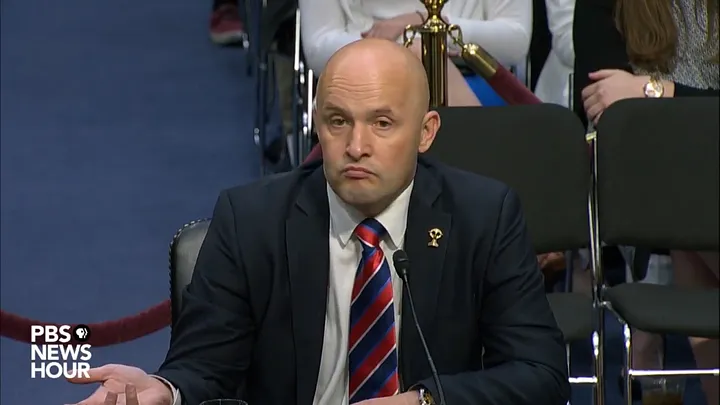Senate Intel Committee Hearing Highlights @DFRLab
U.S. Senators measure Russian interference in European elections
Senate Intel Committee Hearing Highlights @DFRLab
Share this story

BANNER: Source: Youtube / PBS News Hour
During a June 28 U.S. Senate Select Committee on Intelligence hearing on the subject of Russian intervention in European elections, Amb. Nicholas Burns and Janis Sarts provided witness testimony that highlighted our mission of moving from talk to action by identifying and exposing disinformation.
Nicholas Burns, former U.S. Ambassador to NATO (@USNATO) and current professor teaching diplomacy and international relations at the Harvard Kennedy School of Government, discussed methods by which Russia is attempting to influence the upcoming German elections by spreading disinformation.
A recent report by the Atlantic Council (where I am a board member) detailed concerns in Europe that Russian operatives are employing ‘social bots’, untruthful and fake news stories and disinformation to confuse the public debate before Germany’s elections in September. That same Council report by its Digital Forensics [Research] Lab reminded its readers that the Russian government controls an effective and far-reaching global media platform comprising RT, Sputnik, NewsFront and other services. These Moscow-controlled news agencies are actively spreading false information in Germany about the parties, candidates and issues at the heart of the campaign. What is happening in Germany today happened to us last summer and autumn.

In his own written testimony, Janis Sarts, the director of the NATO Strategic Communication Center of Excellence, referenced evidence provided by the same @DFRLab report to argue that disinformation campaigns currently threaten multiple European elections.
The Atlantic Council’s Digital Forensic Research Lab has tracked down networks of bots involved in promoting the candidates favored by Russia in various elections[,] including Geert Wilders in the Dutch general election campaign and Marine Le Pen in the French Presidential election campaign. Although their connection to the Kremlin cannot be confirmed, the narrative spread by the bots was identical to that of the Kremlin-funded media, and synergies between [the] two were frequent and consistent.

Both Burns and Sarts asserted coordinated disinformation campaigns, such as those used by Russia, represent a serious danger to democracies. Both included calls to action in their statements.
Burns proposed that democratic states should be more active in recognizing and responding to disinformation campaigns.
NATO and the EU should work more closely together to strengthen our democracies in order to resist Russia’s campaign to weaken us. Specifically, we should establish joint working groups of our intelligence agencies and foreign ministries to share information in real time on Russia’s campaign of disruption in our elections. We should also respond quickly with efforts of our own to discredit Russian propaganda on social media and in more established print, radio and television networks.
Director @janis_sarts will testify in a Senate Select Committee on Intelligence hearing on #RU election intervention https://t.co/vDXHm1jKzz
— STRATCOMCOE (@STRATCOMCOE) June 28, 2017
Sarts’s recommendations included “working with the media” in order to create a more robust defense against disinformation campaigns.
“We have to build tools to know … what are the information bubbles? Who is trying to penetrate them? What are the robotic networks trying to push?”
These calls to action mirror the mission of the @DFRLab itself — to move away from talking about the threat of disinformation campaigns, and to move toward taking action to combat such campaigns. Our reporting on #MacronLeaks was able to identify and expose amplifications patterns linked to hyper-partisan groups. With key elections across Europe this year — including federal elections in Germany this September — we will continue to monitor those actors and mechanics seeking to undermine institutions with false narratives and sow distrust.
For more in-depth analysis from our #DigitalSherlocks follow @DFRLab.

